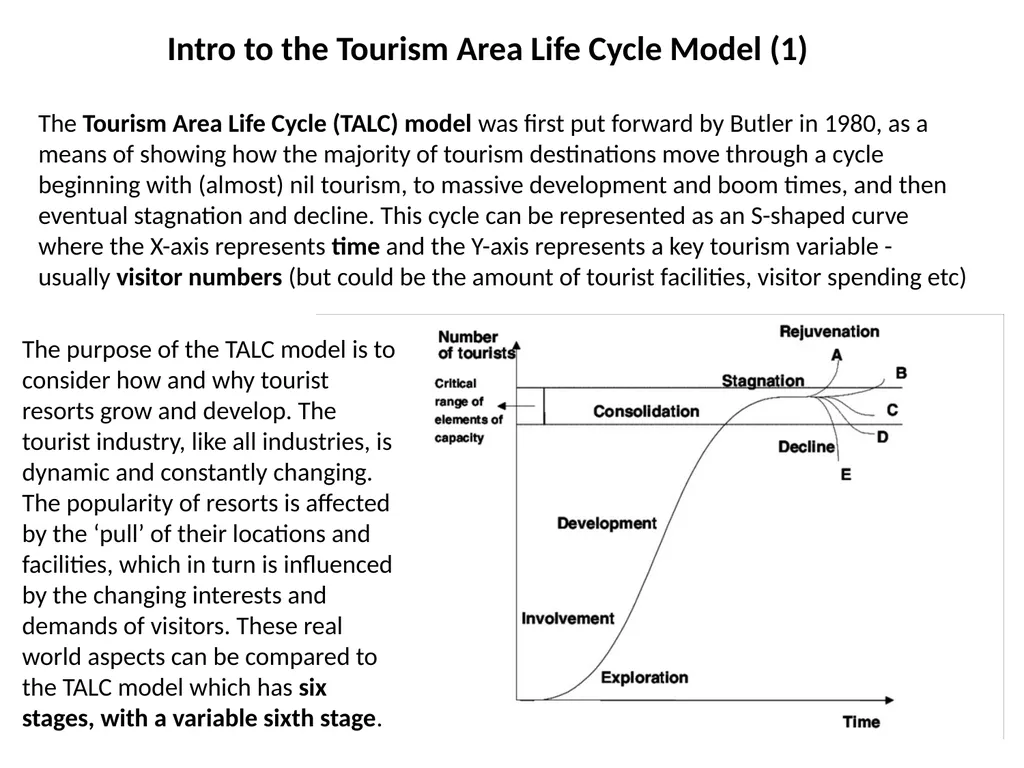
Author : jane-oiler | Published Date : 2025-05-19
Description: Intro to the Tourism Area Life Cycle Model (1) The Tourism Area Life Cycle (TALC) model was first put forward by Butler in 1980, as a means of showing how the majority of tourism destinations move through a cycle beginning with (almost) nilDownload Presentation The PPT/PDF document "" is the property of its rightful owner. Permission is granted to download and print the materials on this website for personal, non-commercial use only, and to display it on your personal computer provided you do not modify the materials and that you retain all copyright notices contained in the materials. By downloading content from our website, you accept the terms of this agreement.
Here is the link to download the presentation.
"Intro to the Tourism Area Life Cycle Model (1) The"The content belongs to its owner. You may download and print it for personal use, without modification, and keep all copyright notices. By downloading, you agree to these terms.













